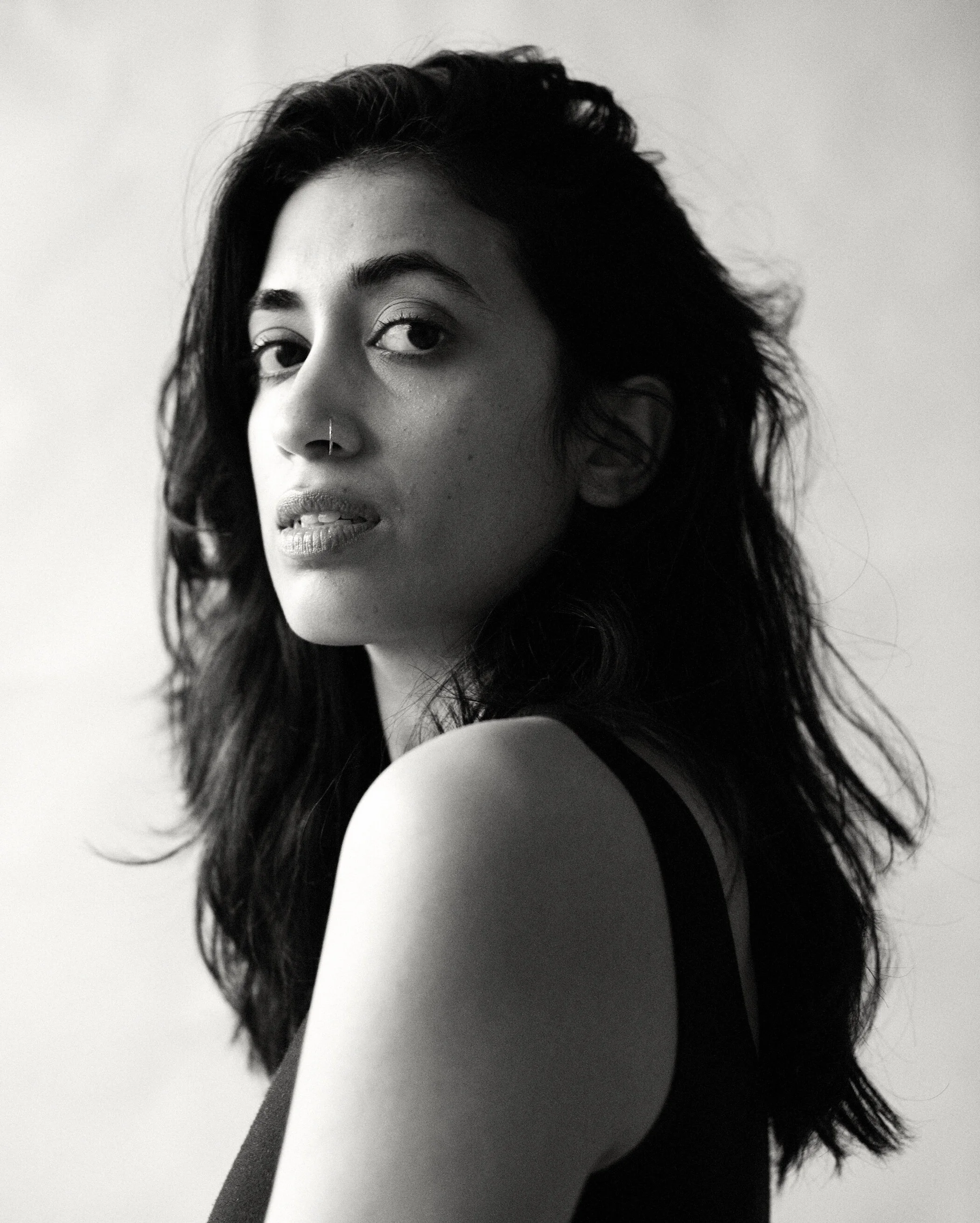Behind Closed Doors with Ashni
Ashni is a Brooklyn-based singer, songwriter, and pianist, who will be performing in our upcoming Keepsake show, Fighting for Folk. Tickets are on sale now! In this interview, Ashni chats with Jay and Hailey about her early creative and musical influences, her relationship to social activism, and her most treasured live show.
In this semi-weekly blog series, we post in-depth interviews that take you behind closed doors (or #BCD) with independent artists, many of whom have performed or will perform in a Keepsake show.
Jay & Hailey:
We read in your bio that your journey on stage began with classical piano lessons and kathak. Tell us a little bit more about how you got into writing and performing your own music.
Ashni:
Studying classical piano and kathak dance gave me building blocks to play with. I will say western classical piano is usually taught in such a way that the player isn’t encouraged to use their ear or transcribe - so that’s something I had to address when I decided to pursue a life in music, and continue to work on.
At some point in my preteens/early teens, I realized I could go to my local music shop and buy the sheet music for the pop records I loved: Norah Jones and Alicia Keys were my first and favorites. I saw myself in them. I learned to play and sing from the written music. I had always been scribbling song lyrics in a notebook, at least since age 11. So around my late high school years, I started putting some of the melodies and words to chords. I performed here and there in undergrad (where I did not study music). Shortly after I graduated, I moved to NY and studied piano and voice with private teachers and began figuring out what it could look like to write, perform, and record music.
“I was very taken with lyrics that were simple and still expansive. ”
Jay & Hailey:
Who are some of your early influences and how did they find their way into your current sound and writing?
Ashni:
As a teen, Norah Jones was a big deal for me. It was the first time I saw someone in pop and believed there could be room for me too. That is the power of representation! I was in love with Billie Holiday and Ella Fitzgerald, I’d sing along and try to emulate their sound. I wanted to be a hybrid of the jazz I loved and the more modern production of R&B and pop. I was very taken with lyrics that were simple and still expansive. And I focused a lot on Billie and Ella’s vocal tone, though it took me years of private study in my 20s to unlearn bad habits from lack of proper training. I think those kernels are still there in the way I sing and write today. Now I can produce my sound with more understanding of what my voice can do. And I have a lot more awareness now of where a song can go - and I’m learning all the time!
Jay & Hailey:
We read that you grew up listening to and inspired by Hindustani classical and jazz music. For those who don’t know, can you describe Hindustani classical music and how that has influenced your work?
Ashni:
Yes, a wide range of music was often on in the house growing up. Hindustani classical, folk, Qawwali, and some jazz records of my Dad’s. Though I didn’t study Hindustani Classical music as a player or singer, I danced to it - I learned the tabla rhythms well, because we performed corresponding footwork. Hindustani Classical music uses complex rhythm and melodic improvisation, with very rich sounds: tabla, harmonium, violin, sarangi, voice - to name a few. In some of my work, the meter and rhythmic patterns influence the structure of a song. In others, a melodic line makes its way in as an interlude or leading line.
“Sometimes when I feel I am not “doing enough” I am reminded by dear friends that offering music as a place to process and heal is exactly what many of us need. ”
Jay & Hailey:
You’re a part of the Resistance Revival Chorus along with another one of our Fighting for Folk performers, Treya Lam. What drew you to joining the chorus? What has been the most rewarding part of that experience so far?
Ashni:
Yes! A dear friend was involved in its conception and told me about it. I joined about a year after they formed, and am so glad I did. It’s an incredible community women and gender non-conforming folks, performing protest music - much of it from the civil rights movement - both on the street and on stages big and small. It seemed like they were creating something special and necessary, I think that’s what drew me to it. One of the most rewarding parts, maybe selfishly, has been the friends I’ve made in a space where we all share similar values and possess a vast number of talents. Treya has become a dear friend and collaborator. Another is the opportunity to see the direct impact of song, in times when people are really wanting to feel connected. I am so grateful.
Jay & Hailey:
Your single “Weave” is absolutely beautiful. One of our favorite lines: March on, will we / Make art, will we / draw crowds, sing loud, home bound / we will always be. Was there a particular event or experience that inspired this song and powerful music video?
“It was so moving and so inspiring, as it always is, to be in a room of South Asian diaspora creatives who are all finding ways to tell, explore, make light of, and understand truths about their stories. It encourages us all to keep going. ”
Ashni:
Thank you! “Weave” was inspired by a lot of what came to a broader, public discourse in the lead up and fall out of the 2016 election. I felt like I was observing (while perhaps dissociating) attempts and failures at communicating, a lot of fear, and a lot of internalized hate that was given an avenue for expression and force.
That last line described how I felt about multiple forms of protest - whether on the street or aiding or organizing in another way. And the hope I felt in a “home” we are all fighting for the right to create. It’s heartbreaking to continue to see power systemically being used to restrict or deny groups of people from being able to live with stability, safety, access to necessities -- to build a home. When we have enough for all, and the capacity to let everyone live with dignity and sustainability. This song was me processing and hoping for better.
Jay & Hailey:
The music video for “Weave” was also featured at the South Asian Film Festival. What did it mean for you to be able to showcase that story and song among other South Asian creatives and the festival’s audience?
Ashni:
Oh, it was so moving and so inspiring, as it always is, to be in a room of South Asian diaspora creatives who are all finding ways to tell, explore, make light of, and understand truths about their stories. It encourages us all to keep going.
Jay & Hailey:
Can you tell us about your relationship to social activism? In what other ways has social engagement informed your work as a musician? In what ways do you hope your music can inspire current and future movements and conversations?
Ashni:
My relationship with social activism is hopeful and delicate. So many systems hold each other up and together cause so much harm to specific communities and to the earth, it can be difficult to know what actions are the most directly effective! I’m grateful for the organizers whom I can turn to, and all those who continue to do work to educate and to make change behind the scenes.
I think my social engagement influences my music in that I feel deeply, as many of us do, about how unjust these systems we contend with are - so I write about what I feel deeply! And I try to both express that pain and offer hope to myself and to others. Sometimes when I feel I am not “doing enough” I am reminded by dear friends that offering music as a place to process and heal is exactly what many of us need. So, I try to stay with that as I continue learning about ways to unlearn, to not cause harm, and to take effective action towards freedom.
Jay & Hailey:
Our upcoming show Fighting for Folk is a nod to the history of folk music as roots to American protest music and movement. We love that the folk music sound is ever-evolving, and an artists’ voice to speak about change transcends to multiple genres and interpretations. Your music in particular crosses from jazz to folk to pop and R&B - what are some of your observations on the modernization of folk music?
Ashni:
That’s a big one! I’m still figuring out how exactly I want to pull in all of my influences, and what part I want to play in the landscape of modernizing and ever-changing genres. One of the songs I’m releasing on this EP is the actualization of an old idea, it’s very heavily influenced by Garba, a Gujarati folk dance and music I grew up with. I put a lot of pressure on myself to “get it right” but I’m realizing as I’m answering you - I grew up with modernized versions of Garba already! There were often synths and electronic drums in the live bands I grew up dancing with. Though the beauty of a few acoustic instruments is always transcendent to me. I’ve really enjoyed seeing how people are incorporating traditional sounds into “modern” songform, and I know I’ll continue to do so with the sounds that evoke home for me.
Ashni will perform in Keepsake’s first in-person show, “Fighting for Folk,” at Mika in Bushwick on Saturday, July 31. Buy tickets now!
Poster by Jeff Deng.
Jay & Hailey:
What’s next for you? What are some upcoming projects or shows you can share?
Ashni:
I have a 3-song EP I am gearing up to release, the first song is set to release sometime in August. I am so excited to share these! And to continue working on new music. I would love for people to stay tuned via social media (@ashnimusic on all platforms) or my newsletter.
Jay & Hailey:
At Keepsake House, we talk a lot about the magic in live shows and the communities they help create, almost like every live performance is itself a keepsake that you cherish from a whole house of life experiences. Tell us about your most memorable or fulfilling live performance, the one you would grab first in a fire.
Ashni:
Oh, it really is magic! And somehow it is difficult to pick one to grab. My most overwhelmingly beautiful experiences were when I felt community in the room. I co-organized and played a benefit show at National Sawdust for an organization called Sakhi for South Asian Women, and that entire night felt electric. We were all there to witness and support, people connected with each other after, there was an energy I can’t quite name or adequately describe.
Treya’s shows at Joe’s Pub during their residency were each unbelievably special and packed with loved ones and incredible artists. There was a similar energy there.
Follow Ashni:
Website | Spotify | Instagram | Facebook | Twitter | Youtube


